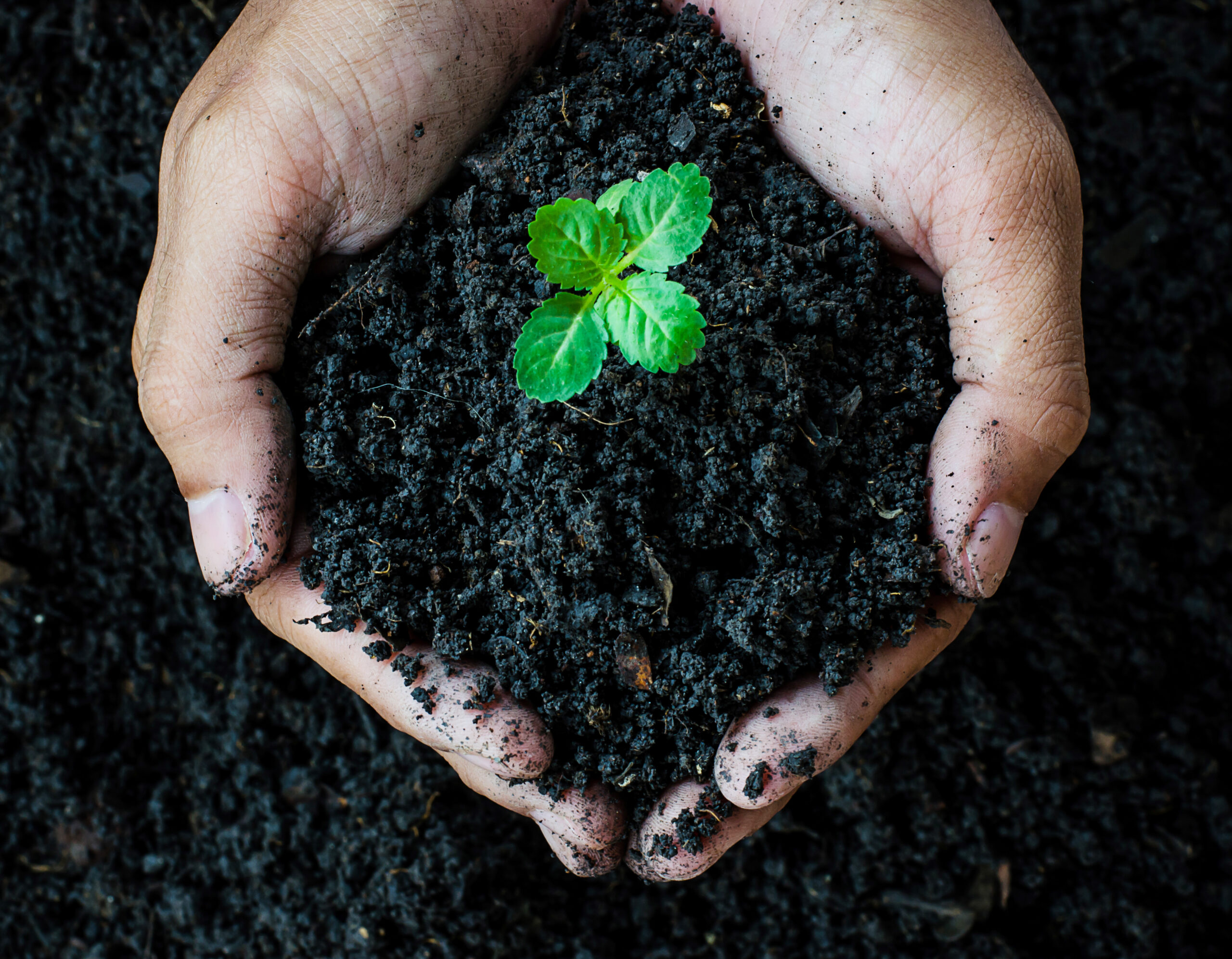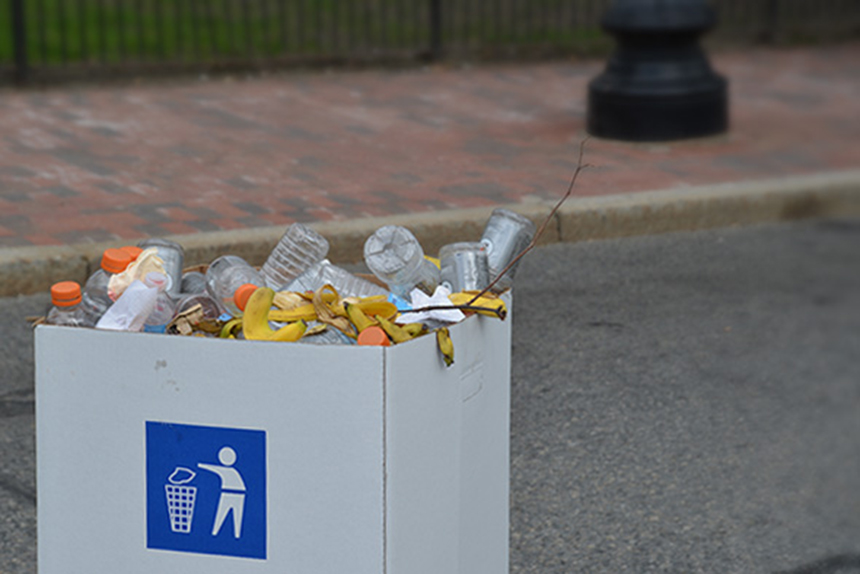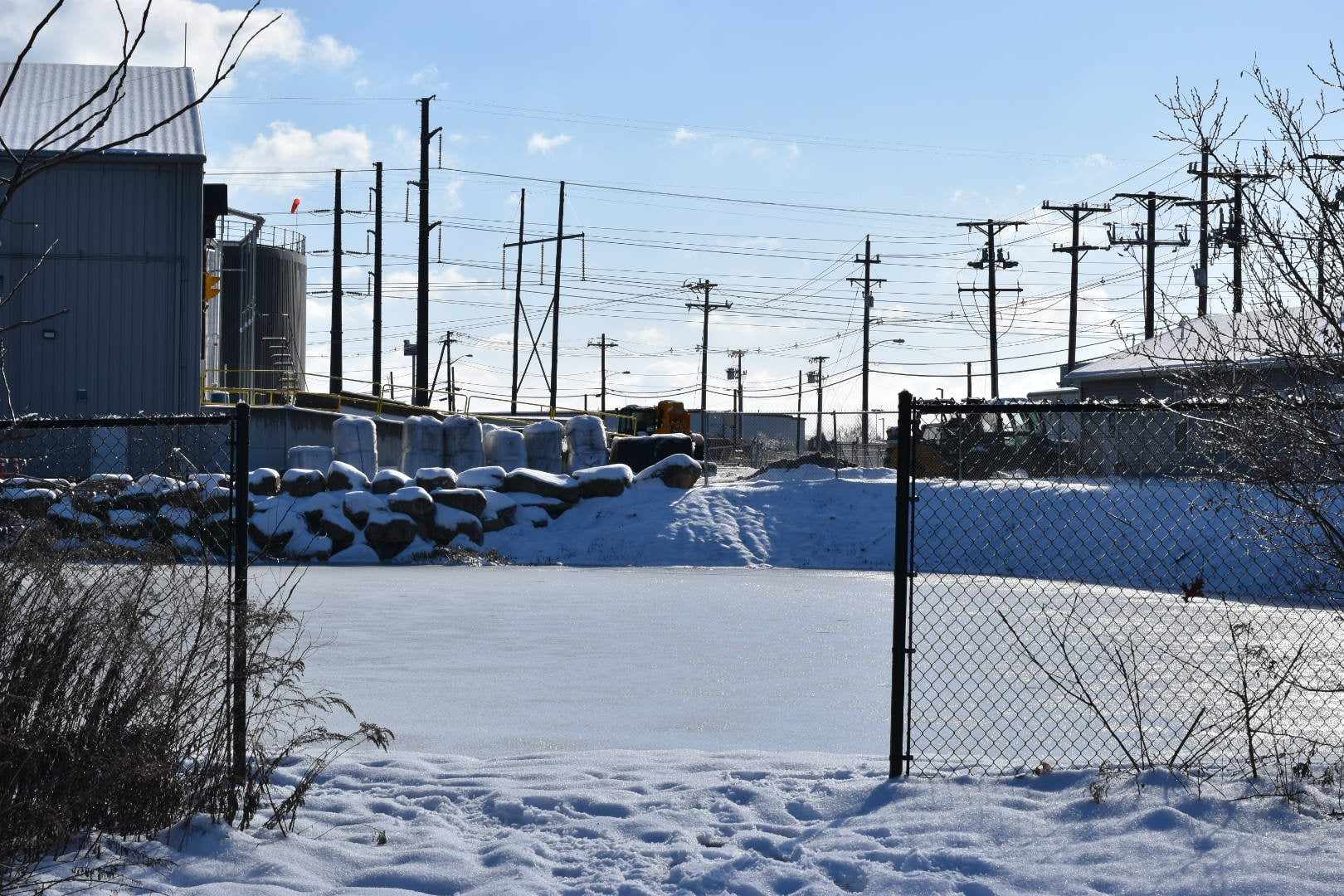Bag It: R.I. Needs to Ban Plastic Tumbleweeds
February 22, 2012
PROVIDENCE — They’re illegal in New Delhi, Bangladesh and Portland, Ore., but they’re blowing all over Rhode Island. They’re snagged on fences along the Woonasquatucket River. They’re bobbing in Narragansett Bay. There are likely several in your home or office at this very moment.
Plastic grocery bags are so ubiquitous in Rhode Island, and in most of the world, that it may seem strange to imagine life without them. But Channing Jones, field associate for the advocacy group Environment Rhode Island, is on a mission. He wants Rhode Islanders not only to imagine such a life, but also to live it.
This winter, Jones launched a campaign he calls “Ban the Bag,” to raise awareness about the environmental impact of plastic grocery bags and urge elected officials to pass town/citywide bans. While the goal is action at the state level, Jones believes it’s best to start small and build popular support.
The typical American uses about 500 plastic bags a year, according to the American Plastics Manufacturing Association. If this is true, then Rhode Islanders use about 525 million bags annually, or enough to circle the earth more than six and a half times.
In 2010, 88 percent of plastic bags, sacks and wraps used nationally weren’t recycled, according to the Environmental Protection Agency (EPA). Since these bags are so light, they compress easily and take up relatively little landfill space. But that lightness also poses a problem — plastic bags don’t stay put. They blow out of landfills and the back of garbage trucks, and often keep moving until they reach water. Plastic bags often rank alongside food wrappers and cigarette butts in the top three most frequent types of marine debris catalogued during the Ocean Conservancy’s annual International Coastal Cleanup.
The campaign’s front line
Jones, 24, has an office tucked unobtrusively between retail storefronts in Wayland Square. The room is spare, with faded gray carpeting and dusty blinds. Jones is soft-spoken, a native of Washington and recent graduate of Amherst College. Though he manages a flock of interns and has some regional support, Jones is the face of Environment Rhode Island, a state affiliate of the national group Environment America. Ban the Bag was inspired by similar efforts on the West Coast and worldwide.
Jones said his initial grudge against plastic bags was simple. They’re common trash and blown along streets like urban tumbleweeds. They’re made of fossil fuel. Waterborne, they threaten highly anthropomorphized animals such as whales and sea turtles that choke to death or starve with plastic-stuffed stomachs. This was enough to catalyze Ban the Bag, but the more Jones researched, the more alarmed he grew.
Once runaway plastic bags blow into the ocean, they may wash up on beaches, or be swept further and further from land. Researchers have counted five areas in the world’s oceans where circular currents, known as gyres, collect seaborne trash into concentrated areas. The most famous of these is the North Pacific Gyre, often called the “Great Pacific Garbage Patch.” The National Oceanic and Atmospheric Administration (NOAA) is equivocal about the size of these areas of floating trash, claiming they are, by nature, unmeasureable.
Eyewitness accounts, retold by magazines like Orion and The Scientific American, size the Great Pacific Garbage Patch as anywhere between the size of Texas and the entire United States. A study by California’s Algalita Marine Research Foundation found that near the center of the North Pacific Gyre “the mass of plastic was approximately six times that of plankton.”
This same study noted that most plastic sampled in the North Pacific Gyre was in small, unidentifiable fragments because, while plastics don’t biodegrade, they do photodegrade. The sun’s ultraviolet rays weaken molecular bonds in plastic and make it brittle. It shreds and cracks into smaller and smaller particles, but the nature of the plastic doesn’t change — it’s still plastic and poses the same threat to tiny ocean creatures and filter-feeding organisms such as clams and barnacles, as large pieces of debris do to sea turtles.
Easily mistaken for food, these tiny plastic particles can be deadly. According to another Algalita Marine Research Foundation study, “accumulation of (plastic particles) may lead to malnutrition and eventual starvation, which could lead to significant reductions in world fish populations.”
The shreds of plastic also absorb toxins from seawater. Some of these chemicals, such as DDT, have long been banned, at least in the United States, but persist, free-floating, in the ocean — until plastics give them something to latch onto. Small marine creatures may eat only a few contaminated particles, but larger animals eat many smaller ones, and top predators, such as marine mammals and humans, may risk the heaviest toxic dose. These chemicals are often stored in an animal’s fatty tissue.
The more Jones learned, the more urgent Ban the Bag became. “Rhode Island is the Ocean State, after all,” he said, noting that Narragansett Bay watershed is central to the state’s identity and economy.
Jones and his interns have been feverishly writing letters to the editor — 14 newspapers in the state have either published the letters or say they plan to publish them. Environment Rhode Island interns go door to door with postcards advocating this ban, which residents can sign and send to their elected officials.
“Most people are supportive and don’t seem to mind the idea of not having plastic grocery bags,” said Valerie Cardenas, a Brown University student and Environment Rhode Island intern who has been working on the campaign.
Additional campaign support
Other environmental groups support such a ban, or are at least considering it. The nonprofit Surfrider Foundation has long been campaigning against plastics, including grocery bags. Save The Bay is interested in evaluating the benefit of a bag ban, according to Executive Director Jonathan Stone. Stone said his group is concerned about plastics entering Narragansett Bay, but has not yet made a policy decision about whether to endorse Ban the Bag.
The campaign also includes a direct approach to lawmakers and businesses. Environment Rhode Island is targeting “towns where we think we can build initial momentum,” Jones said. One target is Warren. Jones has already met with Town Council member Davison Bolster, and is scheduled to meet with local retailers. He’s gearing up to be positive rather than confrontational.
“Ideally, we can figure out how to work together,” Jones said. “If they use less plastic bags, it should save them some money.”
The only naysayers he’s encountered so far are people who oppose government regulation in general. But last year, Rhode Island plastics manufacturers successfully defeated the 15 cents per bag tax that Senators Joshua Miller, D-Cranston/Warwick, and Rhoda Perry, D-Providence, proposed. Several local companies make plastic bags; of these, Toray Plastics is the largest.
Retailers may also fear that plastic bag bans will simply increase demand for paper bags, which are more expensive for stores to buy. Some national plastics advocacy groups, such as the Society of the Plastics Industry, emphasize that plastic bags produce fewer pollutants during manufacture than paper ones. On this point, Jones agreed. “There are different ways that paper is bad,” he said. “We don’t want people switching from plastic to paper. We want them switching from plastic to reusable bags.”
Categories
Join the Discussion
View CommentsRecent Comments
Leave a Reply
Your support keeps our reporters on the environmental beat.
Reader support is at the core of our nonprofit news model. Together, we can keep the environment in the headlines.
We use cookies to improve your experience and deliver personalized content. View Cookie Settings




Westport CT is also plastic bag free.